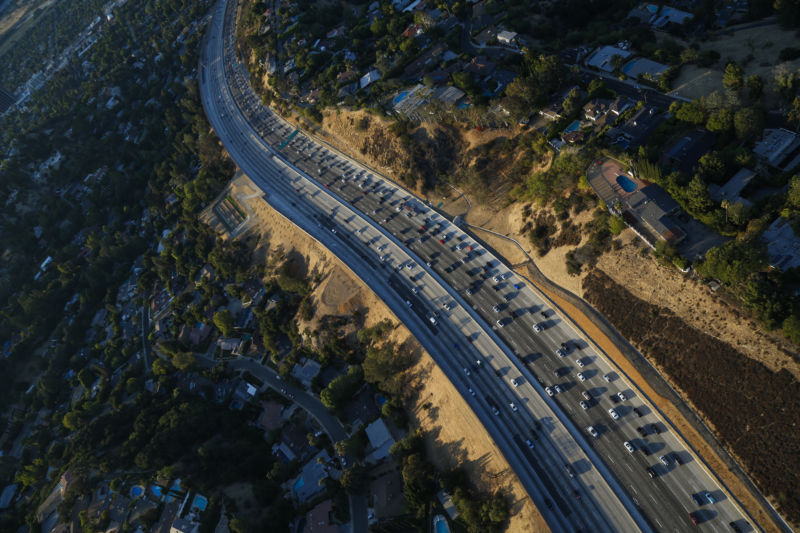
The state of California sued the US Environmental Protection Agency (EPA) and the National Highway Traffic Safety Administration (NHTSA) on Friday, demanding to see the data and research that was used to inform the Trump administration’s latest attempt to roll back future fuel economy standards.
Specifically, the Golden State asked to see all “documents concerning vehicle-fleet composition, new car sales, vehicle safety, battery technology, and other information that NHTSA and EPA used in proposing to roll back vehicle emission and fuel economy standards.”
The California Air Resources Board (CARB) submitted a Freedom of Information Act (FOIA) request in September 2018 to both the EPA and the NHTSA. In its recent complaint, CARB says that NHTSA responded to the FOIA with incomplete information and with inadequate justifications for why it held back what it did. The EPA failed to reply at all, California’s complaint says (PDF).
Now, California has sued both agencies in the hopes that a judge will compel them to make the requested information available.
Potentially flawed analysis
The EPA and the NHTSA have been trying to relax fuel economy standards for vehicles out to Model Year (MY) 2025, after two years of mixed lobbying from the auto industry and secret pressure from the oil and gas industry. (“The proposal would increase US oil demand by an estimated 500,000 barrels per day” according to S&P Global Platts.)
The Obama administration signed strict fuel-economy standards into law upon leaving office, meaning that the Trump administration had to develop a scientific argument to rescind those standards, showing that it would not make Americans worse off.
The resulting Safer Affordable Fuel-Efficient (SAFE) proposal, published in August 2018, offered convoluted logic to support freezing fuel-efficiency standards at MY 2020. The EPA and the NHTSA, which worked on the rule together, suggested that stricter fuel economy standards will make cars more expensive. This would lead customers to wait longer to buy a car, meaning older cars will stay on the road. Older cars are less safe, the Trump administration wrote, so approximately 12,700 more people will die than would have been the case if we had just let fuel economy standards alone.
However, economists and auto industry researchers have not been able to draw such a clear line of causation between fuel economy standards and traffic fatalities, despite years of comparable research. In December, 11 researchers from prominent universities published a letter in the journal Science. They argued that the EPA’s analysis contained several apparent flaws and failed to make a convincing argument that the current fuel economy standards should be rolled back. That letter was cited in California’s letters to the EPA and the NHTSA prior to filing the recent lawsuit.
California has a particular interest in pushing back against the Trump administration’s fuel economy rollback because part of the rollback removes the state’s unique ability to set its own fuel economy standards (which are currently in line with the EPA’s 2025 fuel economy standards). At least 16 states have pledged to follow California’s lead in keeping stricter fuel economy standards. California has sued the EPA directly to challenge the proposed rule. In February, the Trump administration said it would not try to negotiate with the state to find a middle ground.
https://arstechnica.com/?p=1488067

